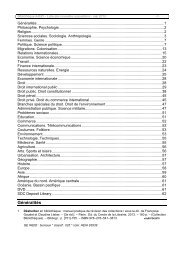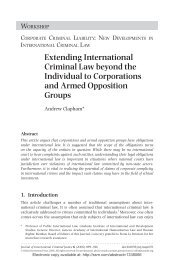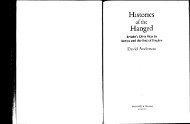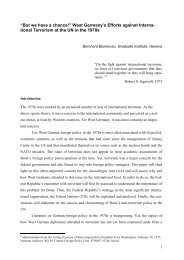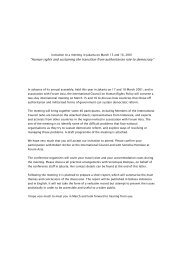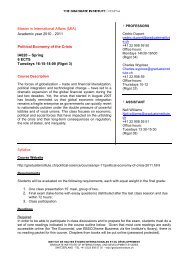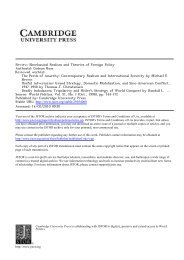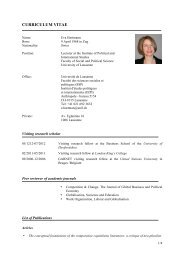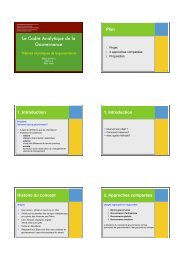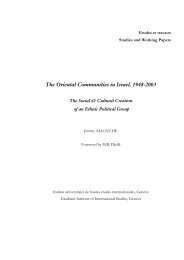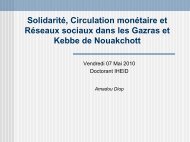Switzerland - The Graduate Institute, Geneva
Switzerland - The Graduate Institute, Geneva
Switzerland - The Graduate Institute, Geneva
Create successful ePaper yourself
Turn your PDF publications into a flip-book with our unique Google optimized e-Paper software.
CENTRE FOR SUSTAINABLE MANAGEMENT OF RESOURCES,<br />
RADBOUD UNIVERSITY NIJMEGEN<br />
Radboud University Nijmegen, Centre for<br />
Address<br />
Sustainable Management of Resources, P.O. Box<br />
9010, 6500 GL NIJMEGEN, <strong>The</strong> Netherlands<br />
Phone +31 (024) 3652262<br />
Fax +31 (024) 3652263<br />
Web http://www.ru.nl/ucm/english/<br />
E-Mail secr.csmr@science.ru.nl<br />
Category Research and Knowledge<br />
MISSION STATEMENT<br />
At Radboud University Nijmegen the Centre for Sustainable Management of Resources is an education and research centre. It<br />
bridges the gap between the traditional disciplines. It does education and research in the following fields:<br />
• trans-national river and water management<br />
• sustainable development and gender issues<br />
• environmental studies linking different disciplines<br />
Founding year Not indicated.<br />
BACKGROUND AND ACTIVITIES<br />
In September 2007, the center hosts an international conference on the following topic: “Religious Studies and <strong>The</strong>ology<br />
exploring sustainable development: challenges for higher education”.<br />
‘<strong>The</strong> debate on sustainable development has lately gained momentum with the production of new evidence for rapid climate change,<br />
the earlier Millennium Ecosystems Assessment report, and media presentations such as Bill Clinton’s tour and Al Gore’s movie An<br />
Inconvenient Truth. Whereas this debate has until now focused largely on technical aspects, there is now growing attention for<br />
underlying values, assumptions, opinions, and, ultimately, the deeper religious motivations in our cultures underpinning<br />
environmentally benign or destructive behavior. <strong>The</strong> relations between these worldviews and their impact on the environment<br />
(positive or negative) are by no means clear and should be debated further. How are those worldviews and the debate about their<br />
supposed effects incorporated in the academic disciplines of religious studies and theology, in their research and education? Do<br />
academic and other higher educational institutions sufficiently equip their students for this debate? In what way do they incorporate<br />
the theme in their research agendas? How can the disciplines of religious studies and theology (of all faiths and denominations)<br />
contribute to the underpinning of social and international policy debates on sustainable development as articulated in, for instance,<br />
the Earth Charter and the Millennium Development Goals?’<br />
SELECTED PUBLICATIONS<br />
Proceedings of the Seminar will be published on the Seminar website as well as in hard copy.<br />
www.ru.nl/ucm/projecten/duurzaamheid/religiecongres_2007/



![Download [pdf] - The Graduate Institute, Geneva](https://img.yumpu.com/23370020/1/190x248/download-pdf-the-graduate-institute-geneva.jpg?quality=85)
